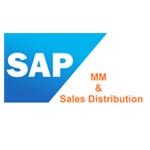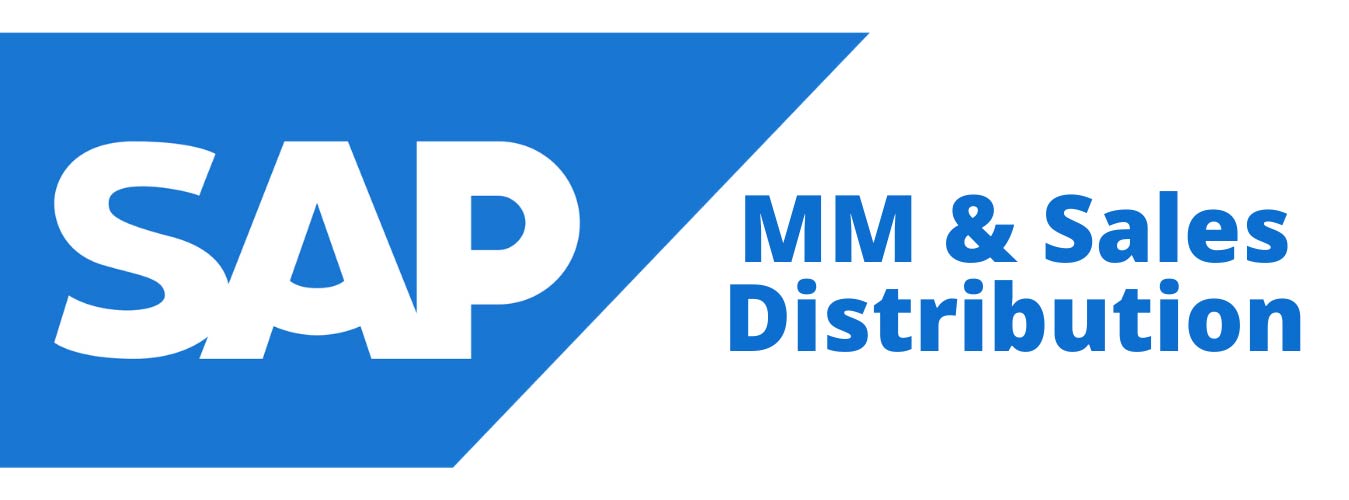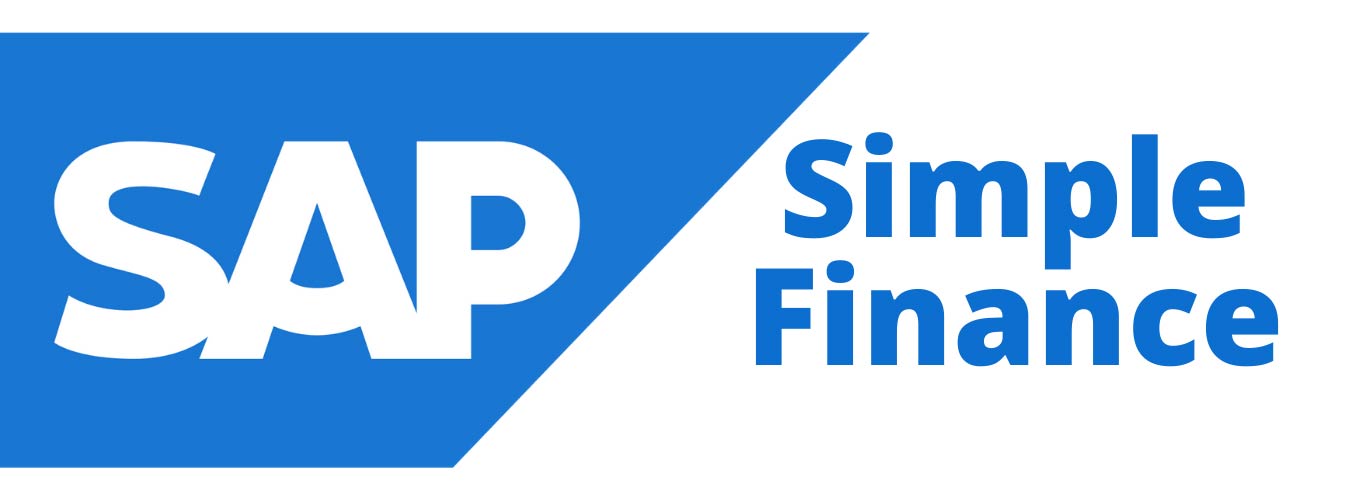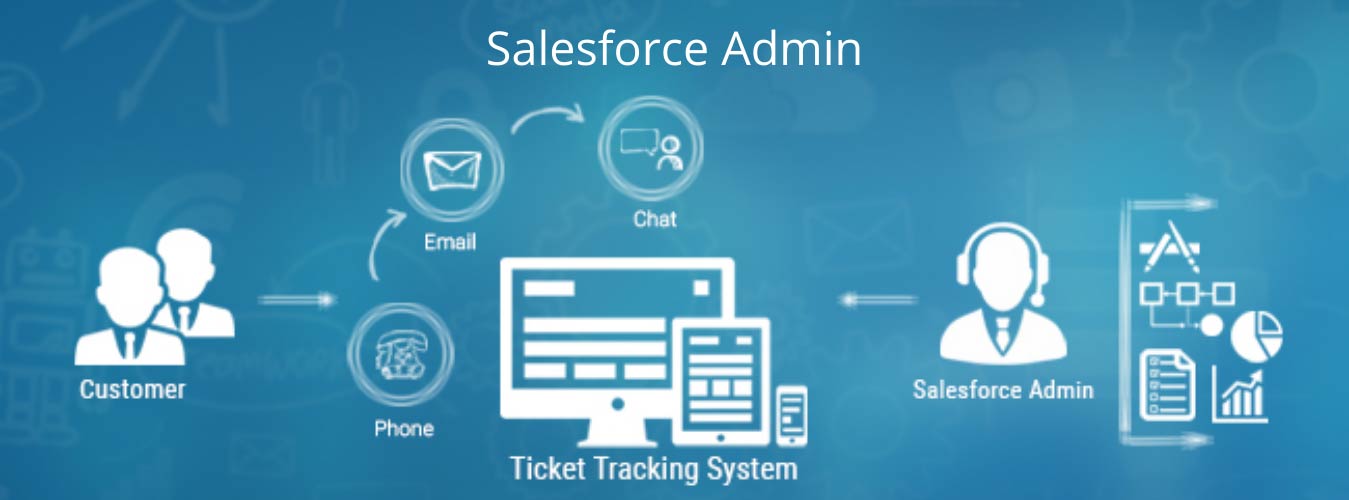SAP MM & Sales Distribution

SAP MM & Sales Distribution
SAP MM is also known as SAP Material Management system and belongs to the logistics area which aids in managing procurement activity of an enterprise right from the procurement stage. All aspects of material management such as planning and control are supported here, serving as the backbone of the industrial logistics domain incorporating modules ranging from Sales and Distribution to Plant Maintenance and Warehouse Management. SAP MM processes see to it that no shortage of materials exists nor any gaps in the supply chain process of the enterprise. Cost and time efficiencies are boosted and material management and procurement processes are accelerated greatly using SAP MM. SAP MM aims to accelerate productivity, minimize costs and boost enhancements while staying flexible and versatile enough to accommodate modifications in daily operations.

Course Summary
SAP MM is also known as SAP Material Management system and belongs to the logistics area which aids in managing procurement activity of an enterprise right from the procurement stage. All aspects of material management such as planning and control are supported here, serving as the backbone of the industrial logistics domain incorporating modules ranging from Sales and Distribution to Plant Maintenance and Warehouse Management. SAP MM processes see to it that no shortage of materials exists nor any gaps in the supply chain process of the enterprise. Cost and time efficiencies are boosted and material management and procurement processes are accelerated greatly using SAP MM. SAP MM aims to accelerate productivity, minimize costs and boost enhancements while staying flexible and versatile enough to accommodate modifications in daily operations.
SAP SD or Sales and Distribution is another module of SAP ERP which is utilized for the storage of product and customer of an enterprise. SAP SD includes the management of selling, billing, shipping and transportation of products and services of a business. It is also worth noting that SAP Logistics module is responsible for management of customer relationships beginning from quotation all the way to billing of specified product or service. There is close integration between both SAP MM and SAP SD.
The integration with Sales and Distribution SD Module can be illustrated with an example.
For instance, if one is to create a sales order in SAP SD, it would include copying item details from material management. The item and price details are checked and extracted from MM which can be in turn controlled in the SD module. The Material Master is also responsible for the creation of outbound and inbound delivery of goods for a sales order, loading point, shipping details and more.
The item placed utilizing Sales orders must undergo an extension in the sales region of an enterprise to sales order/customer, or else it would not be possible to transact with the said material. There is a connection between SAP SD and the MM module, as confirmed by this example when a sales order has been created and fulfilled. And such links exist in abundance
Course Highlights
Our course curriculum is exhaustive and covers a comprehensive list of topics as stated below:
- Define enterprise structure– covers SAP methodology as a whole while defining fundamental terms ranging from documentation and document types of organizational elements and more.
- Creating master data-spans everything dealing with master data such as material master, customer master, customer material info records and even control tables.
- Documents- this module will deal with document structure and tables, types and function and document and copy control
- Basic settings – includes pricing and material determination along with Listing/exclusion and determination of tax, revenue account, output, free goods and more.
- Other Basic settings – this covers item proposal, Incompletion procedure, route and shipping point determination and more
- Documents processing – Includes outline agreements, pre-sales processing along with order processing, returns, contracts, consignments and more.
- Sales information system – this includes lists and work lists ABAP list viewer, flexibility analysis and more
- Advanced topics– include intercompany business processing, Cross company stock transfers, Rebate processing and more
- Getting Started with SAP SD– deals with the SAP SD Organizational Structure and creation of SAP SD documents such as SD Inquiry, Quotation, Contract, Sales Contract and more.
- SAP SD Master Data – covers customer master data, SD Material Master, SD Conditions Master Data, SAP Customer-Material Info Record and more
- SAP SD Sales Customizing– SD Sales Document Types, SD Item Categories, SD Division, SAP Sales Group and more
- SAP SD Processes– SAP Order to Cash Process, SAP SD Copy Control and SAP Sales Document Flow
Additional Sales Scenarios
– SAP Free Goods
Prerequisites
This is a course which does not require strict requirements for candidates to take it up. However, it is recommended for candidates to have the following qualifications which will prove to be highly beneficial:
- A fundamental knowledge of how an enterprise handles customers and products
- Previous exposure to inventory is also really useful to SAP MM and SD candidates
- Handling billing and shipping will also prove to be an added advantage
- Prior knowledge of important business processes relevant to manufacturing, production management
Why Learn SAP MM and SAP SD?
Our certification course is aimed at preparing the candidates as stated below:
- This teaches one the execution of major business procedures included in sales and distribution processing
- It enables the candidates to implement major functions and customizing settings in the sales and delivery processing
- Explains how one can manage the enterprising activities of sales and distribution
- Candidates will learn to keep track of product availability in inventory along with placement of back orders and more
- Candidates will learn to handle sales forecast, advertising, marketing and the comprehensive sales information system
- Professionals will also be able to handle Billing and invoice needs such as generation of invoices, statements, bills along with product deliveries.
- Candidates will also learn about credit management including setting of credit limits and management of customer specific credit.
- By the end of the course candidates will also learn about pricing and taxation, including product pricing and assessment and maintenance of price lists and other data
Who Can Learn SAP MM and SAP SD?
This course is aimed at:
- Candidates aiming to comprehend the fundamentals of SAP SD and implement the same in practice.
- Consultants handling sales, billing, and transportation of products and services
- This course is suited for most professionals with a fundamental university degree such as BA, BBA, B.Sc., MBA, Engineering, and more
- Those looking to begin a career as SAP functional configurations, consultants or SAP functional analysts in the field of Materials and Manufacturing
Advantages of Using SAP MM and SD
- Real time information – individuals and enterprises will gain enhanced visibility of updated information such as inventories, credit status and pending deliveries
- Inventory visibility at all manufacturing plants – Global access to available inventory at various plants is possible
- Promotional and Pricing accountability – Easy access to tracking of key performance indicators is made possible enabling one to easily track the impact of price increases over several years and across various brands
- Business Intelligence reporting – BI provides in-depth reporting tools, orders pending deliveries and more, augmenting the capabilities of SAP
- Enhanced global alignment of procedures and operation – this enables businesses to align and synchronize best practices in business
Companies using SAP MM-SD
Ford
This automobile giant Leverages the capabilities of SAP MM and SD, to re-structure their Sales and Material requirements in-keeping with the latest market needs and trends – leading to new levels of efficiency in material management and Sales.
Toyota
Similar to the Ford, Toyota harnesses the limitless capabilities of SAP MM-SD to streamline procurement, sales and inventory in its manufacturing divisions and boost their bottom-line on a regular basis.
3M
This name which is synonymous with manufacturing the world over has been known for innovation ever since its inception. And this MNC has adopted SAP MM and SD to boost its already ever-increasing efficiency levels in all processes in sales and inventory management.
British Petroleum
The Oil and Gas conglomerate has seen to it that there is global access to all its manufacturing plants throughout the world ensuring seamless access to inventory records.
General Motors
This company has gone the way of both Ford and Toyota and adopted SAP MM-SD to enhance operations, by ironing out differences in the generation of inventory data and accessing it
Why bumaco global?
Our certification course ensures candidates of the best possible learning outcomes by employing best-in-class training standards as mentioned:
- We employ only the best trainers available in the market who meet global standards in the current market.
- The course content developed is prepared by industry experts who are well-versed in their niche and are up to date on current market trends.
- We customize our learning solutions to individuals as well as corporate batches, meaning scaling will be seamless.
- An optimum blend of online course content is integrated with Instructor Led Sessions to ensure maximized learning outcomes
What do we provide?
- Experienced faculties who are certified in the area of SAP MM and SAP SD
- Quality study materials including assignments, assessments, case studies, and presentations
- Access to tools to perform analysis and reporting
- Become a certified with the concepts, techniques and its tools
Certification Help
SAP ERP (Enterprise Resource Planning) system consists of a number of modules. Each of the modules covers certain business areas of a company that utilizes SAP. Usually, functional SAP consultants are usually proficient in only one or two of the modules available in SAP MM and SD.
Presently, SAP offers certification at associate, professional, and master levels. And the name of the certification will depend upon the expertise level, for instance, SAP SD Certification for the first level is called SAP Certified Application Associate – Order Fulfillment with SAP ERP 6.0 EHP5 (code C_TSCM62_65) and SAP Certified Application Associate – Order Fulfillment with SAP ERP 6.0 EHP6 (code C_TSCM62_66). Even though there are variations in the software versions (EHP5 or EHP6), these differences are not concerned with the SAP SD module.
SAP Certified Application Associate - Order Fulfilment with SAP ERP 6.0 EHP4
The certification test SAP Certified Application Associate - Order Fulfillment with SAP ERP 6.0 EHP4 validates knowledge in the domain of Production for the consultant profile. This certificate verifies that the candidate has a fundamental grasp within this consultant profile, and can apply this acquired knowledge practically in projects.
- Exam Code C_TSCM62_64,
- Pass Score 54%
- Exam Duration 180 mins
- 80 Multiple Choice questions
SAP Certified Application Associate - Order Fulfilment with SAP ERP 6.0 EHP5
This is similar to the exam mentioned above with marginal differences in course content and exam given
- Exam Code C_TSCM62_65,
- Pass Score 59%
- Exam Duration 180 mins
- 80 Multiple Choice questions
SAP Certified Application Associate- Order Fulfillment with SAP ERP 6.0 EHP6
This is similar to the exam mentioned above with marginal differences in course content and exam given
- Exam Code C_TSCM62_66,
- Pass Score 57%
- Exam Duration 180 mins
- 80 Multiple Choice questions
What are the components of SAP Materials Management?
The components of SAP Materials Management include inventory, purchasing, master data and material resource planning. Master data and transactional data are the two categories of data stored in SAP R/3. Master data form the base or core of any organization. Whatever activity you do, you need to maintain certain master data. Examples of master data include material, vendor, customer master data etc.
Purchasing starts with material resource planning, goes through a series of steps like purchase requisition, assigning a source to PR, releasing the PR, converting PR to PO, receiving goods receipt and the final step then being invoiced receipt.
Inventory management has a basis for many processes like the definition of movement types, reservations, goods issue and finally goods receipt.
Pricing procedure can be defined to be a way which helps in determining prices of documents related to purchasing. Through this, different calculation types can be defined for different requirements
What are the types of Purchase Orders in Procurement?
The types of Purchase Orders in Procurement include
- Subcontracting Purchase Order: In this type, the vendor gets components from the ordering party which he uses to produce a product. Company orders the product by means of a purchase order.
- Consignment Purchase Order: If the materials that you use belong to the consignment stocks, then you are liable to pay to the vendor for it.
- Stock Transfer Purchase Order: The company which acquires the goods and the company which supplies them is the same in this type of purchase transfer. That is, the acquiring and supplying plants are owned by the same company.
- Service Purchase Order: In this type of purchase order, a third party acts as a provider of the services like electricity, machine oiling etc. to the company
List the features of Service Management and the types of Service Procurement.
The features of Service Management include
- Direct consumption of services rather than keeping them in inventory,
- Storage of service description and units of its measure in master data and
- Using service entry sheet to have records of procured services.
The two types of service procurement are Planned Services and Unplanned Services.
- Planned Services: Specifications like quantity, price, etc,. are known well in advance when the service procurement happens. Everything is made clear beforehand.
- Unplanned Services: Specifications like quantity, price, etc., are now known in advance when the service procurement happens. Thus, not everything is made clear beforehand
What are the key components in SAP SD?
The key components in SAP SD are −
- Customer and Vendor Master Data
- Sales Support
- Shipping of Material
- Sales Activities
- Billing related
- Transportation of products
- Credit Management
- Contract Handling and Management
- Foreign Trade
- Information System
What is the career path of SAP MM and SD in the market?
Doing the certification course in these domains guarantees good paying jobs. The job profiles available after doing this certification include SAP MM Consultants, SAP Functional Analyst in MM like Plant Maintenance Analyst, Functional Configurator in MM, etc. For getting these job profiles, along with the certification, good planning skills, analytical skills, and experience in the full life cycle implantation is also required. The standard experience being 2-4 years. The salary varies from Rs 55K to Rs 700K depending upon the skills and experience
What are the benefits of SAP MM in the organization?
In various organizations, there is a need of a well-structured and well-organized process that makes the whole process of sourcing and acquisition, from acquisition to the payment completion effective. For this, SAP MM is followed in an organization. The benefits of SAP MM in an organization include:
- The better acquisition structure is provided by SAP MM. This leads to more organized acquisitions.
- Aiding value of material assessment
- Arranging of data storage and its utilization
- Improvement in seller’s handling
- Worldwide improvement in quality controlling
- Reduction in material costs, which attracts more customers.
- Reduction of labor costs
- Positive effect on the transparency of an organization
- Improvement in delivery time is guaranteed by SAP MM.
- Efficient labor usage is provided by SAP MM. This is the result of the reduction of labor costs
What are the tools used by SAP SD Professionals?
The tools used by SAP SD Professionals include CITRIX, MAGIC, SNOW, Remedy, Clarity, Solution Manager, RADIX, ACS, Solution tracking system, which are used by the user for handling the tickets. CITRIX has an icon called SYNERGY by clicking on, which will make you check your tickets. For a user, they seem as if they are a normal mailbox. What you need is a username and password through which you can log in these tools. After logging in, you can access the tickets that you have as assigned for you
What are the Prerequisites of SAP MM & Sales Distribution Course?
This is a course which does not require strict requirements for candidates to take it up. However, it is recommended for candidates to have the following qualifications which will prove to be highly beneficial:
- A fundamental knowledge of how an enterprise handles customers and products
- Previous exposure to inventory is also really useful to SAP MM and SD candidates
- Handling billing and shipping will also prove to be an added advantage
- Prior knowledge of important business processes relevant to manufacturing, production management
What are the system requirements to attend the live sessions?
- Processor I3 with 4GB RAM, OS can be 32 or 64 bit (Laptop/Desktop)
- Internet connection with Min 1 MBPS speed
- Good quality headset
- Power back up
- You can also log in through your Android mobile phone/ Tablet with 4G internet connectivity
What if the trainee miss any session?
The trainee can watch the recorded video of all the sessions in the LMS or Trainee can attend the missed session in the upcoming batches.
What do the trainee get from the LMS?
The trainee will have the access to Recorded sessions, Assignments, Quizzes, Case Studies, few course documents posted by trainers, Placement related docs etc.
What is the validity of the LMS access? What if the LMS access is expired.
The trainee will get 1-year access to the LMS. You can contact our support team to extend the validity of the LMS.
Will the trainee get any project to work on with SAP MDG course?
Yes, of course! The trainee will get the project at the end of the course; you need to submit a project. Our trainers will assist you to complete the project.
How are the practicals done?
The trainee will get step by step assistance on VM installation from our expert trainers during the practical sessions, post live sessions, you can practice at your end and submit your queries if any to our support team support@bumacoglobal.com for further assistance.
What are the types of training we offer?
- WBLT- Web-based live Training
- WBVT- Web-based Video Training
- One on One live training
- Self-paced training
- In class training
What are the benefits of online training ?
- Flexible location
- Flexible schedule
- Travel free
- Time saving
- Cost saving
- LMS access
- You will never miss a class
- Two-way interactive
- Fast learning
- Trainer support for 1 year
Who are our Trainers?
Our trainers are industry experts having 10 to 15 years of industry experience and 3-4 years of training experience. Most of the trainers are working professionals who teach the real time scenarios which will help the students to learn the courses in an effective manner.
Will the trainee get the certification post the course completion?
Yes, Trainee will get the participation certificate from Bumaco global upon successfully completing the course.
What if the trainee has more queries and need assistance?
The trainee can drop an email to support@bumacoglobal.com an automatic ticket will get generated. Our support team works 24/7 to assist you with all your queries.
Be the first to add a review.
Designed & Developed by www.brandhype.in
Copyright © 2020 Bumaco Global. All rights reserved.


